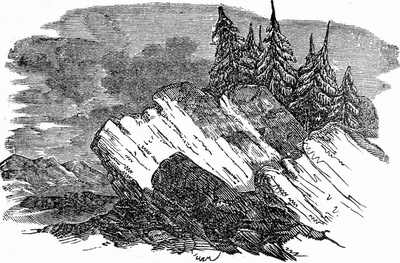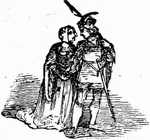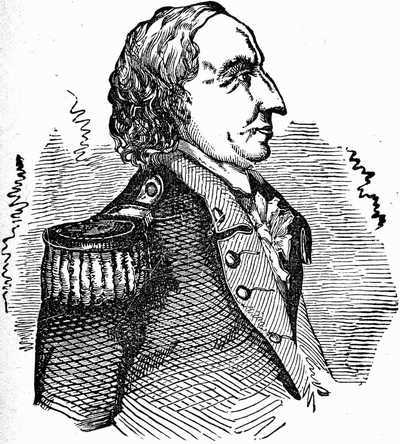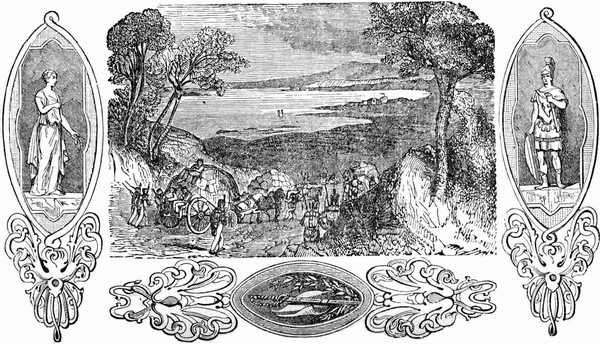Thrilling Incidents In American History
• Preface
Revolutionary War
• Opening Of The Revolution
• The Boston Massacre
• Affair of the Sloop Liberty
• Affair of the Gaspee
• The Tea Riot
• The Boston Port Bill
• The First Continental Congress-Consequent Parliamentary proceedings
• Organization of the Minute-Men
• Patrick Henry-Second Provincial Congress-First Military Enterprise
• Battles of Lexington and Concord
• Battle of Bunker's Hill
• Capture of Ticonderoga
• Second Continental Congress-Washington's Appointment
• Siege of Boston
• Incidents at the Evacuation of Boston
• Burning of Falmouth
• Arnold's Expedition to Quebec
• Siege of Quebec, and Death of Montgomery
• Scenes at Quebec during the Siege
• Expedition against Charleston
• The Declaration of Independence
• The Battle of Long Island
• Washington's Retreat through New Jersey-Capture of General Lee
• Battle of Trenton
• Battle of Princeton
• Capture of General Prescott
• Battle of Brandywine
• Battle of Germantown
• Battle of Red-Bank
• Attack on Fort Mifflin-Retirement of the Army to Valley Forge
• Battle of Bennington
• Murder of Miss M'Crea
• Battle of Stillwater
• Battle of Bemis' Heights, and Retreat of Burgoyne
• Capture of Forts Clinton and Montgomery
• Surrender of Burgoyne
• The Treaty with France
• Attack on Savannah, and Death of Pulaski
• Storming of Stony Point
• General Sullivan's Campaign against the Mohawks
• Tarleton's Quarters
• Battle of Camden, and Death of De Kalb
• Arnold's Treason
• The Loss of the Randolph
• The British Prison-Ships
• Capture of the Serapis
• Putnam's Feat at Horseneck
• Battle of Eutaw Springs
• Wayne's Charge at Green Spring
• Capture of the General Monk
• The Mutinies
• Battle of the Cowpens
• Capture of New London
• Massacre of Wyoming
• Surrender of Cornwallis
War With France
• Capture of L'Insurgente
• The Constellation and Vengeance
War With Tripoli
• Burning of the Philadelphia
• Bombardment of Tripoli
• Loss of the Intrepid
• Expedition of General Eaton
Second War With England
• Battle of Tippecanoe
• Capture of the Guerriere
• Tragical Affair of an Indian Chief
• Battle and Massacre at the River Raisin
• Captain Holmes's Expedition
• Capture of the Caledonia and Detroit
• The Wasp and Frolic
• Gallant Conduct of Lieutenant Allen at the Capture of the Macedonian
• Capture and Destruction of the Java
• Siege of Fort Meigs
• Capture of York, and Death of General Pike
• Defence of Sackett's Harbour
• Defence of Fort Stephenson
• Battle of Lake Erie
• Battle of the Thames
• Gallant Action of Commodore Chauncey under the guns of Kingston Citadel
• The Sacking of Hampton
• Capture of the Peacock
• Massacre at Fort Mimms
• Surrender of Weatherford
• Battle of Niagara
• BattIe of New Orleans
War With Mexico
• Battle of Palo Alto
• Battle of Resaca de la Palma
• Capture of Monterey
• Battle in the Streets of Monterey
• Thrilling Scenes in the Battle of Buena Vista
• Bombardment of Vera Cruz
• Battle of Cerro Gordo
• Battles of Contreras and Churubusco
• Storming of Chapultepec


BATTLE OF BEMIS' HEIGHTS, AND RETREAT OF BURGOYNE.
 FTER the battle of StiIlwater,
the safety of the British army
lay only in retreat. It was unable
to advance; to fan back on
the lakes and return to Canada,
although difficult, was not then
impossible. But every hour lessened the probability
of victory, and rendered retreat more impracticable.
General Burgoyne, however, could not at once
dismiss all the splendid visions of conquest and glory
FTER the battle of StiIlwater,
the safety of the British army
lay only in retreat. It was unable
to advance; to fan back on
the lakes and return to Canada,
although difficult, was not then
impossible. But every hour lessened the probability
of victory, and rendered retreat more impracticable.
General Burgoyne, however, could not at once
dismiss all the splendid visions of conquest and glory

General Gates
which had so long dazzled his imagination; and he flattered himself with the hope of a powerful cooperation on the side of New York, which had not been concerted, and was not to happen. Under those delusions he lingered in his strong camp from the 20th of September till the 7th of October. During that interval daily skirmishes happened, which accustomed the raw troops of America to the face of an enemy. General Gates, sensible that delay was in his favour, meditated no immediate attack on the hostile camp, but diligently took measures to prevent the escape of the royal army from the toils in which it was entangled.
General Burgoyne's difficulties were great, and daily increasing. His army was reduced to five thousand regular troops; his provisions were almost exhausted, and his men put on short allowance; his horses were perishing for want of forage; he was so environed by his enemy that he could procure no fresh supplies, and he had received no recent intelligence from Sir Henry Clinton. He could not long remain in the position which he then occupied, and he was not ignorant of the difficulty and danger of a retreat. In these circumstances, he resolved to try the fortune of another battle; as a victory would enable him either to advance, or to retreat with safety.
Accordingly, on the 7th of October, he led out fifteen hundred men, well provided with artillery, and, accompanied by Generals Philips, Reidesel, and Frazer, marched against Gates, leaving his camp on the high grounds under the care of Generals Hamilton and Specht, and the redoubts and posts adjacent to the river under General Gell. General Burgoyne's detachment had scarcely formed within about half a mile of the American intrenchments, when its left, where the grenadiers were posted, was furiously assailed. The Germans, who were on the right of the grenadiers, were also soon engaged. Three regiments, under General Arnold, proceeded to attack the right of the British detachment in front, while another division endeavoured to turn its flank and gain its rear. In order to frustrate this intention, General Frazer, with the light infantry and part of the 24th regiment, was ordered to Cover the right; but, while he was making a movement for that purpose, the left was overpowered and gave way. To save it from destruction, Frazer hastened to its assistance; but met with an American corps of riflemen, which briskly attacked him, and he was mortally wounded in the conflict. The whole royal detachment now gave way; and, with the loss of most of its artillery, retreated to the camp. The Americans closely pursued, and, under a tremendous fire of grape-shot and musketry, fiercely assaulted the works throughout their whole extent. Arnold, who conducted the assault, urged on his men; but was ultimately repulsed by the British under the immediate orders of General Burgoyne, after having had his horse shot under him, and being wounded in the same leg which had been injured at Quebec. The left of the American detachment, under Colonel Brooks, was more successful. It turned the right of the royal encampment, stormed the works of the German reserve, under Colonel Brehman, who was killed, and his troops retreated, with the loss of aU their artillery and camp equipage; while Brooks maintained the ground which he had gained.
Darkness, as on the 19th of September, put an end to the bloody conflict; and the Americans lay all night on their arms, about half a mile from the lines, with the intention of renewing the assault in the morning. The advantage which they had gained was great. Without any considerable loss, they had killed many of the enemy, made upwards of two hundred prisoners, among whom were several officers of distinction, taken nine pieces of brass artillery, all the baggage and camp equipage of a German brigade, obtained a large supply of ammunition, of which they stood much in need, and had entered the royal lines, and gained a position which threatened their rear. About midnight, General Lincoln with his division marched from the American camp to relieve the troops who had been engaged, and to occupy the ground which they had won.
General Burgoyne's situation was now critical and distressing. Since he had come fairly into contact with his enemy he had met with an obstinacy of resistance and a vigour of attack wholly unexpected. In the late encounters, the Americans had shown themselves a match for the best veteran troops, and capable of improving any advantage which they might obtain. Sensible, therefore, of the danger of encountering the events of next day on the ground which he then occupied, General Burgoyne resolved on a total change of position. Accordingly, in the course of the night, in a silent and orderly manner, and without any interruption from the Americans, he moved his camp to the hills, extending his right up the river. The entire change of front extricated him from the immediate danger with which he was threatened; and induced the Americans to make new dispositions.
On the 8th, General Burgoyne made some attempts to provoke General Gates to attaek him in the strong position which he had taken: but those attempts were ineffectual; for General Gates, fully aware of his own advantages and of the difficulties to which his adversary was reduced, declined an immediate attack; but was active in taking every precaution to prevent the escape of the royal army. He posted fourteen hundred men on the heights opposite the ford of Saratoga, and sent strong detachments to guard the fords higher up the river.
The 8th of October was spent in skirmishing and cannonading. About sunset, the body of General Frazer, who had been mortally wounded on the preceding day, was, agreeably to his own desire, carried up the hill, to be interred in the great redoubt, attended only by the officers who had lived in his family. Generals Burgoyne, Philips, and Reidesel, in testimony of respect and affection for their late brave companion in arms, joined the mournful procession, which necessarily passed in view of both armies. The incessant cannonade, the steady attitude and unfaltering voice of the chaplain, and the firm demeanour of the company during the funeral service, though occasionally covered with the earth torn up by the shot from the hostile batteries ploughing the ground around them, the mute expression of feeling

BURGOYNE'S RETREAT.
pictured on every countenance, and the increasing gloom of the evening, all contributed to give an affecting solemnity to the obsequies. General Gates afterwards declared, that if he had been apprised of what was going on, he would at least have silenced his batteries, and allowed the last offices of humanity to be performed without disturbance, or even have ordered minute-guns to be fired in honour of the deceased general.
General Burgoyne being informed that an American
column was advancing with the intention of gaining
his right flank, resolved immediately to retreat to
Saratoga, about ten miles up the river. He began
his march about nine in the evening of the 8th,
leaving behind him several boats loaded with provisions
and baggage, and his hospital, containing
about three hundred sick and wounded men, towards
whom General Gates behaved with his usual humanity;
but the roads were so bad, and the heavy
rain so incessant, that it was the evening of the next
day before the British army, much fatigued, reached
Saratoga; and it was not till the forenoon of the 10th
that the rear passed the fords of Fishkill Creek, a
little further north. On arriving at the ground which
he intended to occupy, General Burgoyne found a
party of the Americans already in possession of it;
but on his approach they retreated, and joined their
countrymcn on the east of the river.